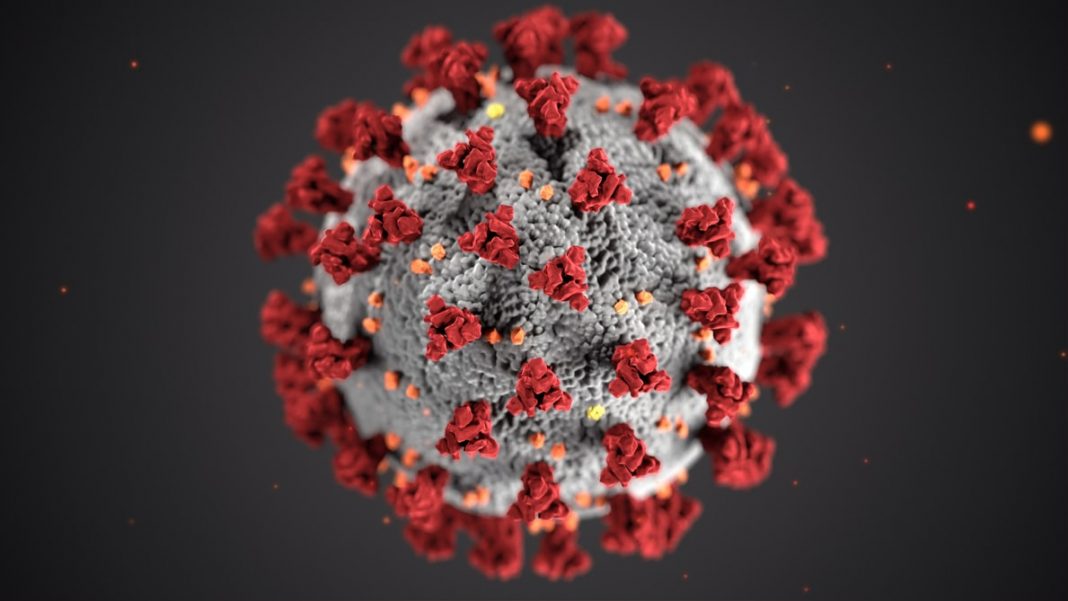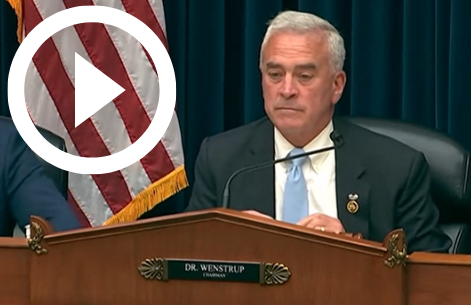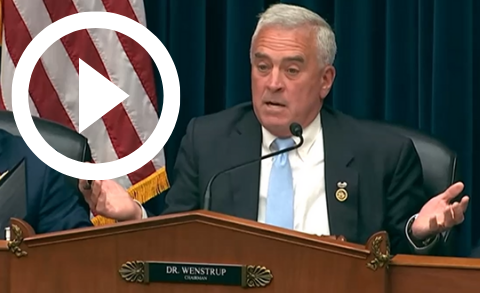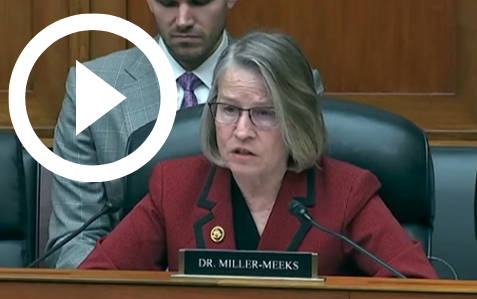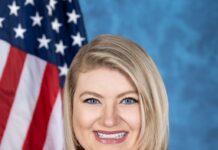The Select Subcommittee on the Coronavirus Pandemic held a hearing titled “Academic Malpractice: Examining the Relationship Between Scientific Journals, the Government, and Peer Review” to explore any potential inappropriate influence exerted by the federal government related to COVID-19 over research publications. The Select Subcommittee is disappointed that the Editors-in-Chief of Nature and The Lancet declined Chairman Wenstrup’s invitation to testify at a public hearing. The Editor-in-Chief of Science Journals, Dr. Holden Thorp, however, accepted the Chairman’s invitation and testified publicly about the scientific review process. Dr. Thorp testified that top journals often change their perspective on scientific issues when new evidence surfaces and described how “preprint” articles create confusion for Americans. Members pressed Dr. Thorp on Science’s potentially inappropriate interaction with the federal government and highlighted the chilling effect of silencing scientific debate on public trust. The Select Subcommittee is committed to ensuring conflicts of interest, government intervention, and political biases will never again inappropriately influence the peer review process at top scientific journals.
Key Takeaways
Editor-in-Chief of Science Magazine, Dr. Holden Thorp, agrees with the Select Subcommittee that EcoHealth Alliance President Dr. Peter Daszak may have misled the U.S. government about his highly controversial DEFUSE proposal — which some believe created the blueprint for COVID-19.
Dr. Holden Thorp critiqued Dr. Daszak’s handling of the DEFUSE proposal and agreed with Chairman Wenstrup that new evidence revealed by the Select Subcommittee confirms Dr. Daszak’s culpability: “At that time, I concluded that it was a proposal that wasn’t funded. And there are many proposals that are not funded, in science. And so something that was not funded, I didn’t see as significant as some people did. I understand how you could see it was circumstantial evidence to support some of the things that you’re looking for. And I was critical of both the way that Dr. Collins and Dr. Daszak handled the revealing of that proposal. I certainly wasn’t aware of something that I agree with you is very important that you’ve only recently uncovered, and that is that Dr. Daszak may have had other plans other than what was in the proposal.”
On May 1, Dr. Daszak will appear for a public hearing before the Select Subcommittee. He will be asked to explain inconsistencies between his closed door transcribed interview — where he claimed DEFUSE research would be conducted in North Carolina — and a recently released Freedom of Information Act production that suggests EcoHealth planned to conduct the dangerous DEFUSE research at the Wuhan Institute of Virology in China.
Top scientific journals do not always publish accurate information, conduct thorough peer review, or allow contrarian viewpoints. This is important to recognize because journals like Nature, Science, and The Lancet set the tone for what is believed and discussed in the scientific community.
Dr. Holden Thorp admitted that top scientific journals are not always correct and often change their point of view after publishing scientific information: “Scientists are opinionated people. We have opinions just like everybody else. But we also know, and we could have done a lot better job at explaining this, that science is a work in progress. And so, when we see new data, we change the way we’re thinking, and I obviously did that many times during the pandemic and so did everybody else. In the future, we need to do a much better job telling people that…and we need to do a much better job of helping the public understand that.”
It is clear that the authors of the now infamous “The Proximal Origin of SARS-CoV-2” (“Proximal Origin”) paper— published by Nature Medicine in 2020 — had significant conflicts of interest and that the paper was written to vilify and discredit discussion about the lab leak theory.
In July 2023, the Select Subcommittee released an interim staff report detailing substantial evidence of America’s leading public health officials suppressing the COVID-19 lab leak hypothesis through the drafting, publication, and critical reception of “Proximal Origin.” Key findings from the report are below:
- Nature initially rejected “Proximal Origin” because it didn’t sufficiently downplay the lab leak theory.
- Dr. Fauci, Dr. Collins, and the NIH exerted undue influence over the drafting and publication of “Proximal Origin.
- “Proximal Origin” co-authors skewed available evidence when executing Dr. Fauci’s vision of a single, zoonotic narrative.
- The co-authors of “Proximal Origin” allowed politics to influence the science behind the paper, according to Dr. Kristian Andersen.
- Investigating any COVID-19 cover-up is essential to preserving future scientific integrity.
Member Highlights
Select Subcommittee on the Coronavirus Pandemic Chairman Brad Wenstrup (R-Ohio), D.P.M, noted that although the Editors-in-Chief of Nature, Science, and The Lancet were all invited to participate in the hearing, only the Editor-in-Chief of Science had the courage to appear before the Select Subcommittee.
Chairman Wenstrup: “I want to start with the empty chairs in the room. We also invited Dr. Skipper from Nature and Dr. Horton from The Lancet, both of which publish a significant amount of federally funded research. Dr. Thorpe, you’re here. You showed up. Do you think your colleagues should have as well?”
Dr. Thorp: “I do. I’m disappointed that they’re not here.”
Select Subcommittee on the Coronavirus Pandemic Chairman Brad Wenstrup (R-Ohio), D.P.M, closed the hearing by submitting the Select Subcommittee’s comprehensive interim staff report titled “The Proximal Origin of a Cover-Up” for the record after members of the Minority falsely accused the Majority of failing to uncover evidence of America’s leading health officials suppressing the lab-leak hypothesis.
Chairman Wenstrup: “From our investigations here on the Select Subcommittee on the Coronavirus Pandemic, we know what happened during COVID 19 is Dr. Andersen, who was one of the authors of “Proximal Origins” said Dr. Fauci prompted this, for us to get together and write this. I didn’t make that up. It’s not a lie. Those were his words that we have gotten through our investigation. I’m going to submit for the record, this is the interim majority staff report on The Proximal Origin of a Cover-Up, it’s entitled. The evidence that I referred to is in here, and I’m going to submit it for the record, in case not everyone on this committee has had the chance to read it.
“So a paper gets published where it appears there is sometimes a predetermined outcome from the beginning. You know, as doctors, we read all kinds of articles and you know, a lot of times I want to go to the conclusion first and then see if they already had the conclusion before they wrote their piece and look at things objectively. So, we have to do that sometimes. It’s hard to say that government officials didn’t have any influence, especially on “Proximal Origins” when the record shows that those conversations took place from government officials saying, I’m putting you guys together, I want you to write this piece.”
Rep. Rich McCormick (R-Ga.), M.D., elicited new evidence from Editor-in-Chief of Science Magazine that top scientific journals contributed to the politicization of COVID-19 and that the journals should have done more to ensure the peer review process was void of political interference.
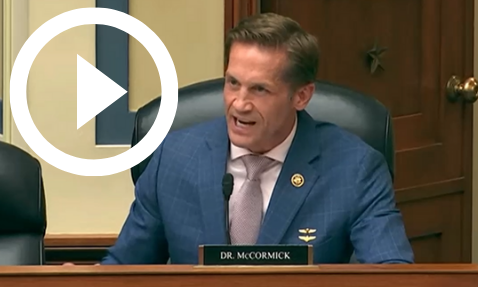
Rep. McCormick: “The same thing goes for the way that we looked at treatments for this COVID disease and the way we talked about medications and isolation and everything else that has been politicized. Could you comment on how the politicization of this disease has actually inhibited a good scientific solution for future debate on medical procedures?”
Dr. Thorp: “I think the politicization of COVID, you know, if we look back on it as something that we all probably wish we hadn’t experienced and hadn’t contributed to that to the extent that we did. And I think the scientific community contributed to that sometimes, and I think politicians contributed to it as well. And it would have been nice to have had a calmer path through the whole thing. But, thankfully, science works in a way that got us to a lot of things that did work.”
Rep. Mariannette Miller-Meeks (R-Iowa), M.D., defended scientists and lawmakers who had the courage to challenge the government’s preferred narrative about the origin of COVID-19 and noted that public trust suffers when contrarian views are censored.
Rep. Miller-Meeks: “As you correctly pointed out, science is not consensus of opinion. And I just want to say, since the time I came into Congress in 2021, I have talked about why the origins of COVID-19 were important. Not partisan, not conspiratorial. But one — laboratory safety. The world has a right to know that the correct type of research is being done in the correct lab safety environment. Number two — immediate disclosure of viruses or bacteria that may lead to a pandemic. And number four — the ethics of the type of research that is being done in those laboratories.
“To say that there was no certainty and no outcome from these hearings — I am proud of the work this Select Subcommittee has done. We are talking about this topic today because people dared to question the narrative that was being proposed. Trust suffers because of censorship, because of a lack of debate within the scientific community. So due to the work of this Select Subcommittee, I think that we have advanced and people that have disparate voices, people that dare to challenge the current narrative which we have seen in science time and time again. And I will bring up peptic ulcer disease is not caused by type-A personality, but a bacteria. And thank goodness people were willing to challenge the medical narrative. But it’s letting disparate voices know that they will be heard, they will not be censored. And, that, absolutely 100% will lead to better preparation for the next pandemic.”


